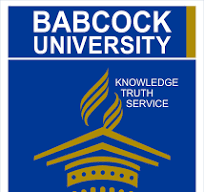The Impact of Women in Northern Nigeria Novels: Reflections From Zaynab Alkali’s Cobwebs Andother Storiesand Abubakar Gimba’s Sacred Apples
DOI:
https://doi.org/10.5281/zenodo.14278705Keywords:
Impact, Reflection, Patriarchal domination, Feminism, Northern NigeriaAbstract
For no fault of the women, society and men have come up with beliefs that have, over time, been used to undermine the roles and status of women in society. In most cases, women are described as the “weak” and vulnerable. This belief promotes the idea of patriarchy in society. Early literary writings in Northern Nigeria project patriarchy through the disdainful indifference and cruelty that male characters subject female characters to (if they ever appear). However, with the introduction of feminism as a literary ideology, conceptions of the roles and status of women began to change. The emergent trend, as it affects the representation of women in subsequent Northern Nigerian novels, is examined through Zaynab Alkali’s Cobwebs and Other Stories (1997) and Abubakar Gimba’s Sacred Apples (1994). This study focuses on the novelists’ use of feminism as an ideology to underscore the need for women’s liberation from the shackles of societal inhibitions and patriarchal domination that have continued to dwarf the potentials, abilities, and capabilities of women in Northern Nigeria over time. Indeed, the description of women as mothers, housekeepers, and housewives whose voices do not matter in the scheme of things in society is what the contemporary literary works under this study have come to challenge.
Downloads
Published
How to Cite
Issue
Section
License
Copyright (c) 2024 Beyond Babel: BU Journal of Language, Literature, and Humanities

This work is licensed under a Creative Commons Attribution 4.0 International License.




